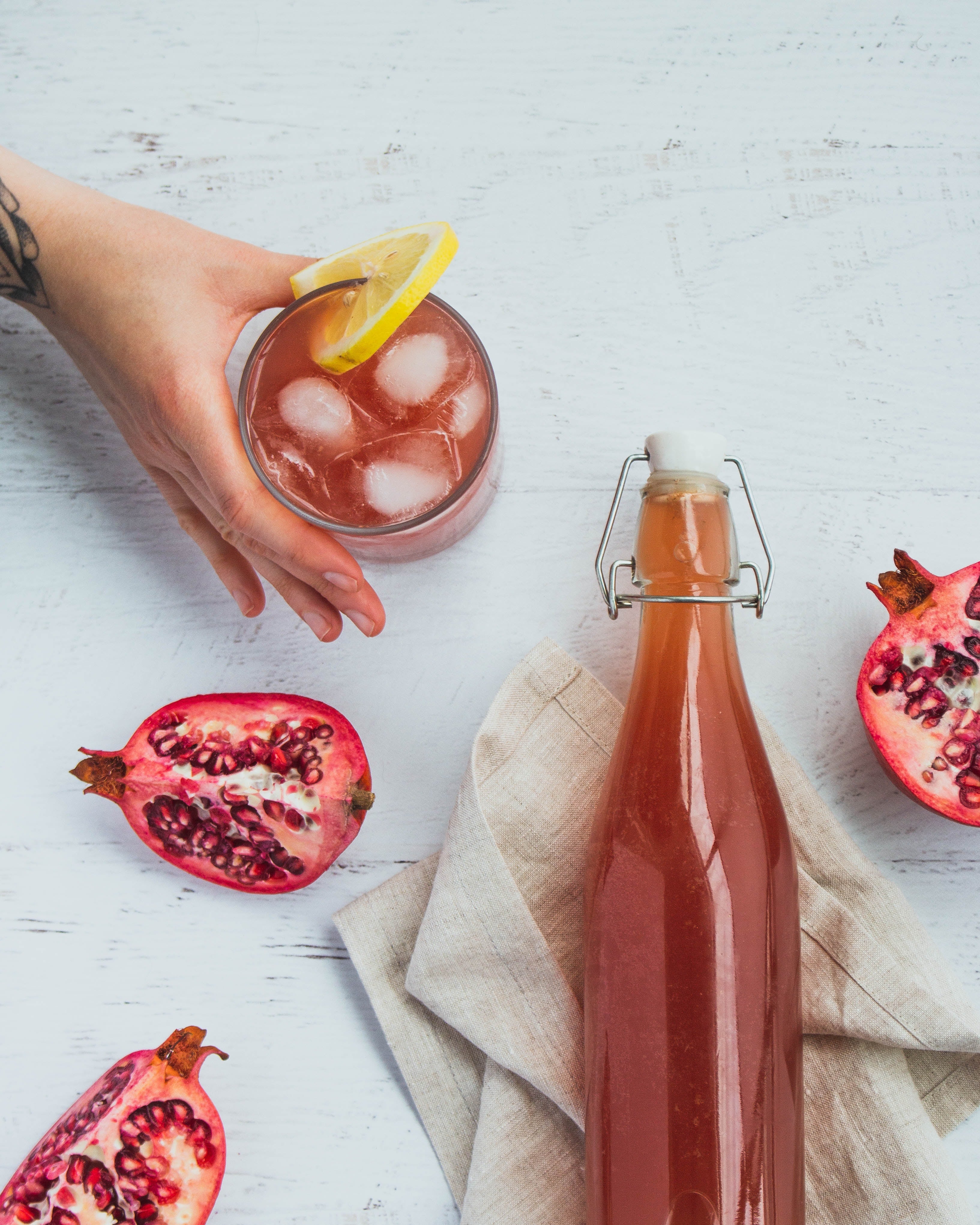Kombucha is a popular fermented tea beverage known for its health benefits. However, many people wonder if kombucha is alcoholic and how much alcohol it contains. The answer is that commercially made kombucha contains less than 0.5% alcohol, which is considered a negligible amount. However, home-brewed kombucha may contain slightly more alcohol, this is a result of the fermentation process and can be controlled by adjusting certain factors in the fermentation process.
Check out this video: Does Kombucha Contain Alcohol?
From our YouTube Channel - The Gut Health Channel
How much alcohol is in kombucha?
Can you get drunk from drinking kombucha? The short answer is no. Kombucha can contain a small amount of alcohol as a result of the fermentation process, but you would have to drink a large quantity to feel even remotely tipsy. Commercially made kombucha contains less than 0.5% alcohol. Home-brewed kombucha may contain slightly more alcohol, but it is still a negligible amount.
To understand why kombucha contains alcohol, it's important to know a bit about the fermentation process. Kombucha is made by adding a SCOBY (symbiotic culture of bacteria and yeast) to sweetened tea. This mixture is then left to ferment for 1-4 weeks, during which the yeast breaks down the sugar to produce alcohol and the bacteria then works to convert it into organic acids, which are linked to some health benefits of kombucha. The end result is a fizzy, tangy fermented tea.

While it is possible for homemade kombucha to contain more alcohol than store-bought versions, it's easy to regulate the amount of alcohol produced during fermentation by using more controlled, commercial methods. To lower the amount of alcohol in homemade kombucha, you can ensure your kombucha has plenty of contact with the air, as bacteria require oxygen to ferment alcohol to organic acids and keep it over 25 C to keep the bacteria happy.
How do you lower the quantity of alcohol in homemade kombucha?
To reduce the alcohol content in your kombucha tea, you can follow a few simple steps. First, make sure to use less sugar in the initial tea and sugar mix. This will reduce the amount of food available for the yeast, which in turn will produce less alcohol, this will however result in less acetic acid being produced. Additionally, you can let your kombucha brew for a shorter amount of time, as the longer it ferments the more alcohol will be produced and therefore less acid. The bacteria use ethanol as a source of carbon in their metabolic pathway to produce acetic acid.
It's important to note that lowering the alcohol content of your kombucha may also result in a less potent and less flavorful brew. However, if you're looking to reduce the alcohol content for personal preferences or health reasons, these steps can help. As always, it's important to monitor the brew carefully and use your best judgement when adjusting the recipe to suit your needs.
How to prevent overactive yeast?
One way to prevent overactive yeast in kombucha is to carefully control the temperature during fermentation. Yeast tends to be more active at warmer temperatures, so it is important to keep the kombucha at a consistent, cool temperature in order to slow down the fermentation process and prevent the yeast from becoming overactive. It's important to note that alcoholic kombucha isn't the result of overactive yeast, but has more to do with underperforming bacteria. Bacteria will underperform in an anaerobic environment (no oxygen) or if the temperature dips below 25 C. This creates an environment that allows yeast to ferment sugar to alcohol faster than the bacteria can turn the alcohol to acid, and therefore the concentration of alcohol increases.

Is it possible to increase the alcohol content in kombucha?
It is important to note that increasing the alcohol content in kombucha may also increase the level of acidity, which can affect the taste and quality of the drink. However, In order to increase the alcohol content of kombucha you would create an anaerobic environment so the bacteria stop fermenting the alcohol to acid. This is how you 'secondary ferment' kombucha in bottles after flavouring to create the fizz, as the yeast converts the sugar to ethanol and co2 (carbon dioxide). This can sometimes create a sulphur-like, eggy smell, as the wild yeasts in kombucha also produce sulphur during the fermentation process. Sulphur is quite a volatile compound, which means it essentially 'blows' away in an aerobic environment - which is why you won't smell it in a healthy kombucha fermentation. Additionally, it's worth noting that kombucha with a higher alcohol content may not be considered a non-alcoholic beverage and may be subject to different regulations. It is best to consult a professional before attempting to increase the alcohol content in kombucha.
Conclusion
Kombucha is a non-alcoholic drink that is safe to enjoy even if you are teetotal. The amount of alcohol it contains is so small that it is classified as a non-alcoholic beverage. If you are concerned about the alcohol content of your kombucha, you can always opt for commercially made varieties or brew your own using controlled methods.
All of Hip Pop's kombucha is a great alcohol alternative. So, whether you are going teetotal, looking to support your gut health, or just looking for a healthier soft drink to fit your lifestyle you should check out Hip Pop Kombucha now.

